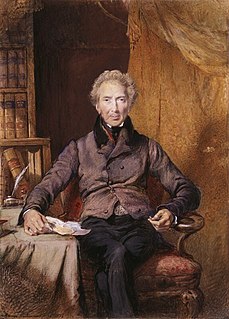A Quote by Thomas Jefferson
Ignorance is preferable to error, and he is less remote from the truth who believes nothing than he who believes what is wrong.
Related Quotes
Two visions of the world remain locked in dispute. The first believes all men are created equal by a loving God who has blessed us with freedom. The second vision believes that religion is opium for the masses. It believes that eternal principles like truth, liberty, and democracy have no meaning beyond the whim of the state. And [Vladimir] Lenin spoke for them.
The world always makes the assumption that the exposure of an error is identical with the discovery of truth - that error and truth are simply opposite. They are nothing of the sort. What the world turns to, when it has been cured of one error, is usually simply another error, and maybe one worse than the first one.
So how do we solve this ancient problem? How can we not just tolerate someone who believes differently than we do, but actually respect them for those beliefs? Because nothing less than that will do. It can?t. Simply tolerating someone who believes differently than we do isn?t enough. ?Accepting? them isn?t enough. Having true and abiding peace with them means loving them. And that means respecting them. Because love without respect isn?t real love at all. It?s at best condescending patronization.
Suppose a student of mine writes in her exam that "morality is completely relative to culture, so nothing is absolutely right or wrong. Because of that, it is absolutely wrong to be culturally intolerant". This student, if she believes what she writes, believes a contradiction. She ought not to believe the contradiction - it's a basic epistemic norm. This is true even if she can't avoid believing it - no amount of studying will show her the light.
Trump believes we lead nations. Trump believes we set the example. Trump believes that American exceptionalism means just that, and anybody that wants to come along with us is more than welcome to. But they got to understand who we are. We're not gonna define ourselves by telling ourselves we're no good or we don't rate, we're gonna be more like you.
































